
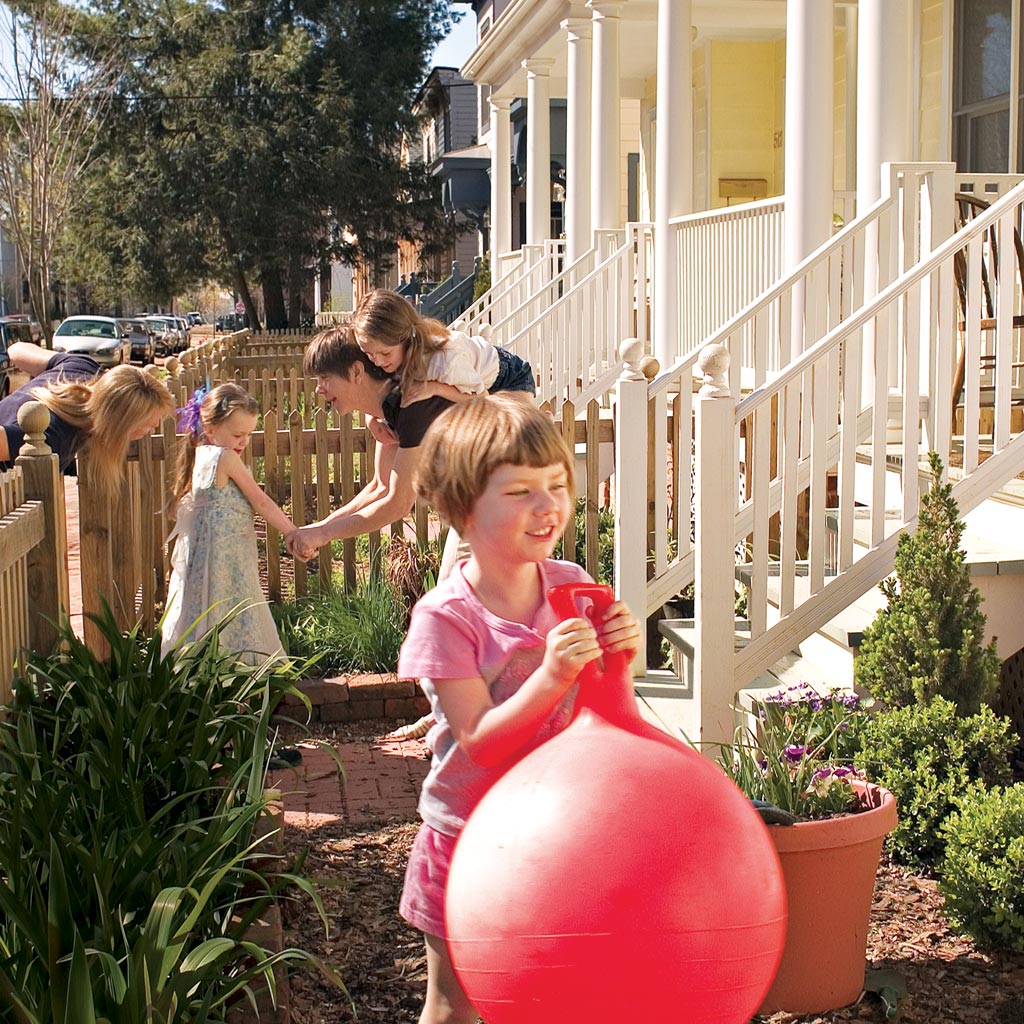
2
Family Income & Assets
Increasing opportunity for employment, skills development, and greater prosperity for residents

“Opportunity is oxygen for communities. A Sustainable Community is a place where lower-income families can afford to live and feel at home; where they envision a future with improved circumstances; where there is a blueprint for how to expand their income, build assets, and invest in businesses.
LISC supports proven and successful programs that open doors to higher-wage, higher-skilled jobs; encourage entrepreneurship; and expand small businesses.”
Financial Opportunity Centers Opened
59
Financial Opportunity Centers Opened
Percent of the Enrolled Clients
Improved Their Net Income
72
Percent of the Enrolled Clients
Improved Their Net Income
People Served by
Financial Opportunity Centers
42,000
People Served by
Financial Opportunity Centers
1
Centers for Working Families
Chicago, IL
LISC is building a national network of facilities and programs that integrate financial counseling and employment support that specifically target the needs of low-income families.
The Local Initiatives Support Corporation launched its network of Financial Opportunity Centers in 2004 to respond to a specific unmet need. Piloted first in Chicago, LISC is building a national network of facilities and programs that integrate financial counseling and employment support that specifically target the needs of low-income families.
We provide services focused on employment placement and career improvement, financial education and coaching, and public benefits access. It’s this comprehensive, bundled approach that separates the LISC Centers from other similar efforts and is a proven strategy for our client’s overall financial success.
LISC Chicago supports 11 CWFs that have served nearly 36,000 clients since opening the doors to their first Center seven years ago. LISC supports 48 additional Financial Opportunity Centers in 14 other cities.

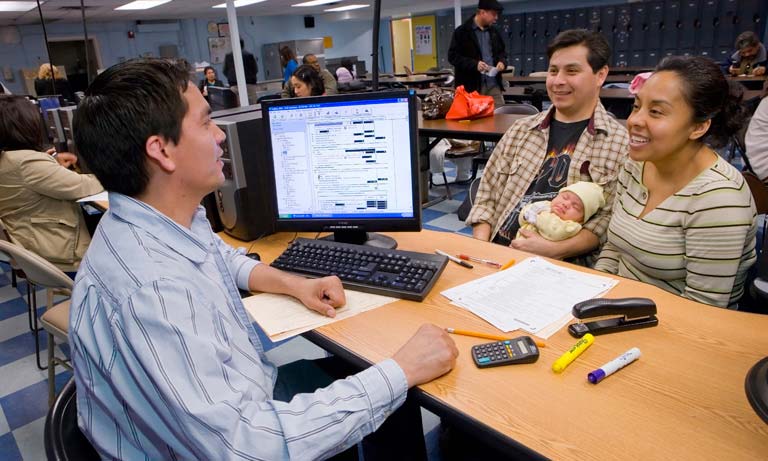

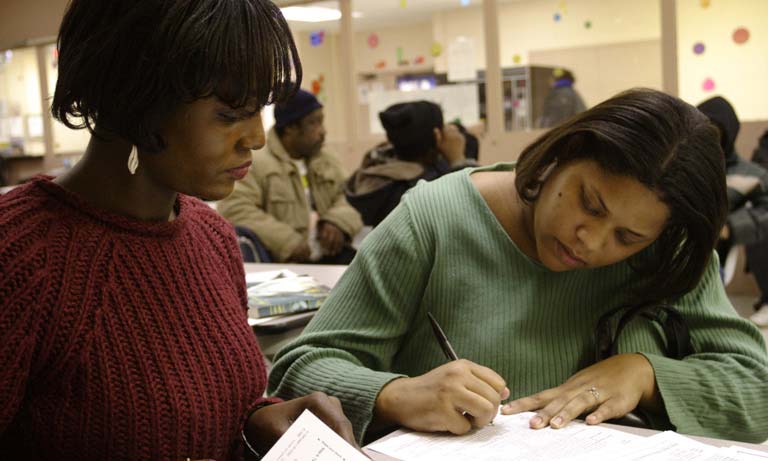
2
International Rescue Committee
San Diego, CA
Our focus is to give low- and moderate-income families the tools they need to grow assets so they can raise their standard of living.
LISC helps connect struggling families to the economic mainstream as a part of its Building Sustainable Communities strategy. We fund programs and organizations that offer employment and career services, financial education and coaching, and low-cost financial products that encourage investment and savings. Our focus is to give low- and moderate-income families the tools they need to grow assets so they can raise their standard of living.
In San Diego, the International Rescue Committee (IRC) is among the LISC partners in helping low-income families build their financial security. As part of its 75-year long global mission to aid refugees in 42 countries, IRC has been helping strengthen San Diego’s ethnically diverse City Heights community, where African, Hispanic and Southeast Asian immigrants bring their rich cultural traditions together. IRC’s microenterprise program helps some of these new American residents achieve economic self-sufficiency through entrepreneurship. IRC offers business loans, credit-building loans and credit-repair emergency loans to borrowers who would not typically qualify for traditional credit. And it is the only loan provider in southern California to offer Reba-free (interest-free) business loans.
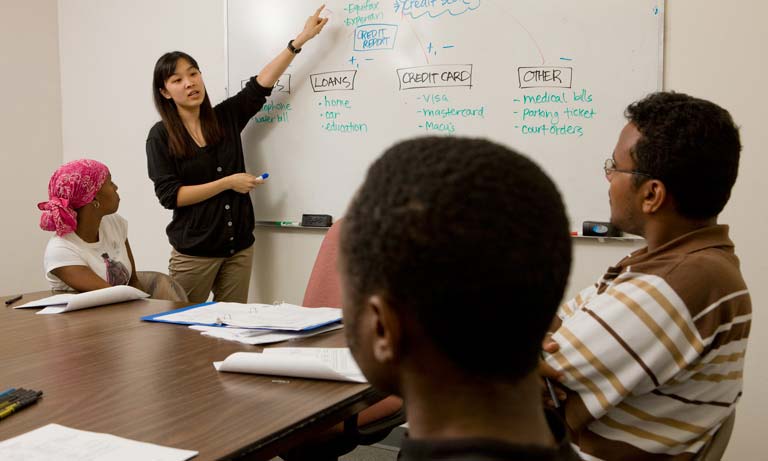
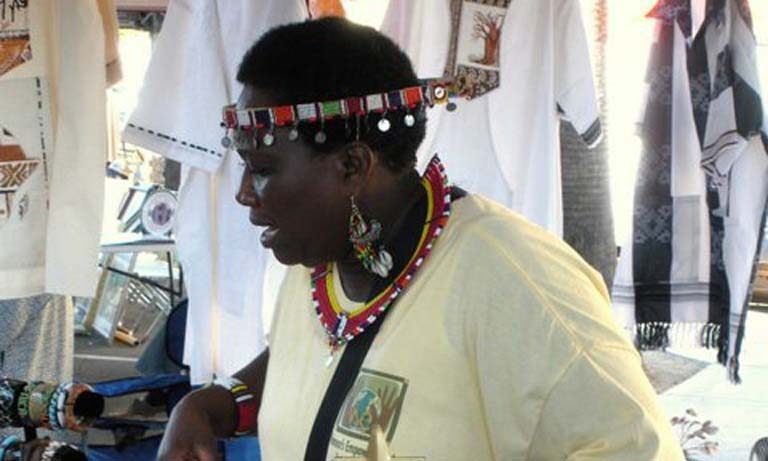
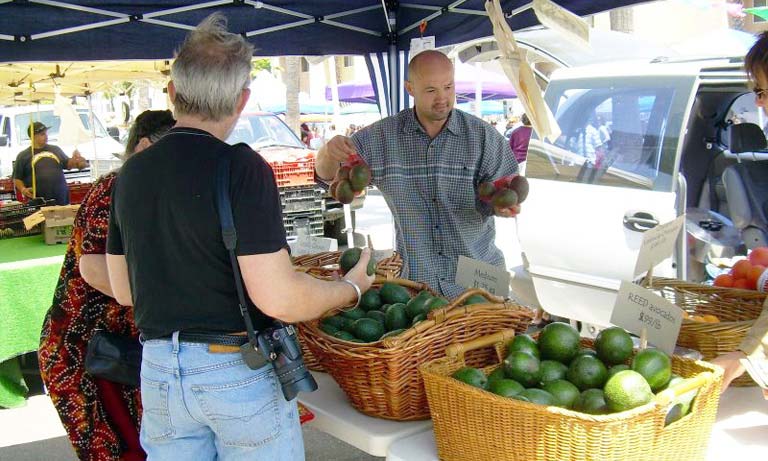
This program supports businesses with products ranging from traditional ethnic clothes and furnishings to Halal prepared foods and child care services. IRC’s program gives City Heights residents the chance to enjoy an expanded array of retail offerings and community services that cater to their particular needs.
3
Northeast Guidance Center
Detroit, MI
Detroit LISC’s Building Sustainable Communities work flows from two decades of investments and strategic partnerships that have helped community-based organizations transform distressed neighborhoods.
Detroit LISC’s Building Sustainable Communities work flows from two decades of investments and strategic partnerships that have helped community-based organizations transform distressed neighborhoods. Detroit LISC is focusing its investments on five neighborhoods so they can become healthy places to live and grow.
On the city’s East Side, for instance, LISC has worked in collaboration with the Northeast Guidance Center (NEGC) to bring new jobs, healthy living environments and brighter futures to the area’s low-income residents. NEGC provides mental health services, counseling, and recovery services to some 6,000 adults and children. With funding from LISC, it completed The Conner Campus in 2009, where it offers workforce training and helps clients strengthen their social skills. The Conner Campus is a LEED-certified facility and part of LISC’s holistic view of healthy neighborhoods that improve quality of life.
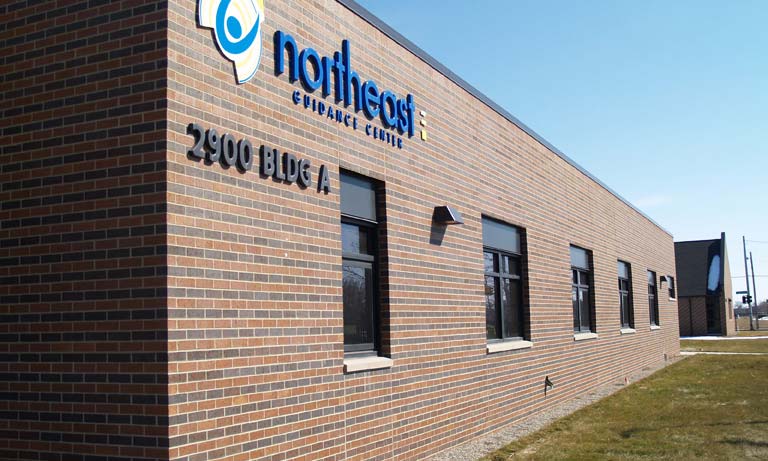
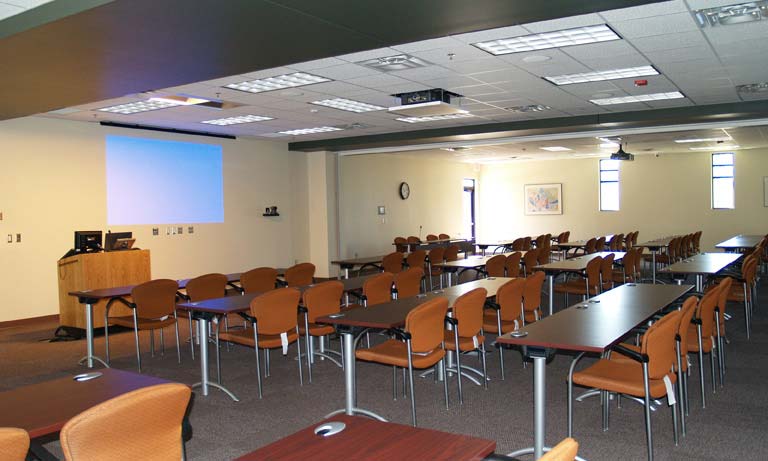
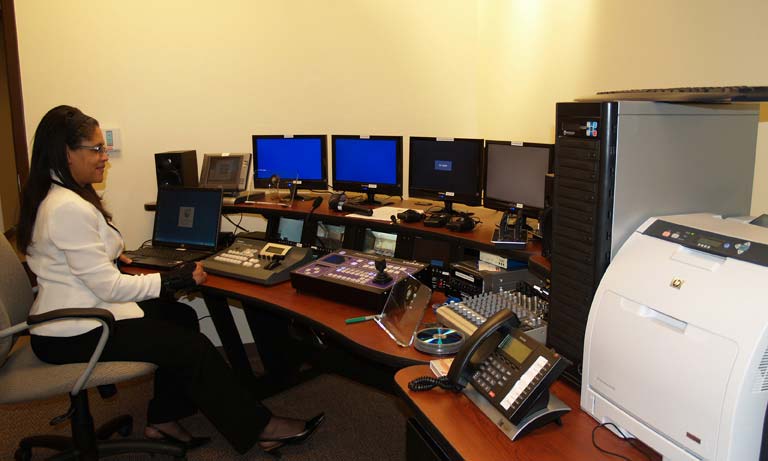
4
John H. Boner Community Center
Indianapolis, IN
The John H. Boner Community Center offers a range of social services to some 7,000 children, seniors, homeless, disabled and other adults in crisis each year.
In Indianapolis, LISC supports six Financial Opportunity Centers serving communities as different as Fountain Square and West Indy and reaching nearly 5,000 Indy residents since 2008. The John H. Boner Community Center, for example, on the Near Eastside, offers a range of social services to some 7,000 children, seniors, homeless, disabled and other adults in crisis each year. It includes LISC’s Financial Opportunity Center model among them, helping low-income families move from spenders to borrowers, and on to savers and investors.
LISC has also been collaborating with a local community college to help Center clients move on to post-secondary education. That includes assistance with financial aid, the admissions process and remedial resources, since some applicants need to upgrade their existing knowledge base in order to pass the required entrance exam.
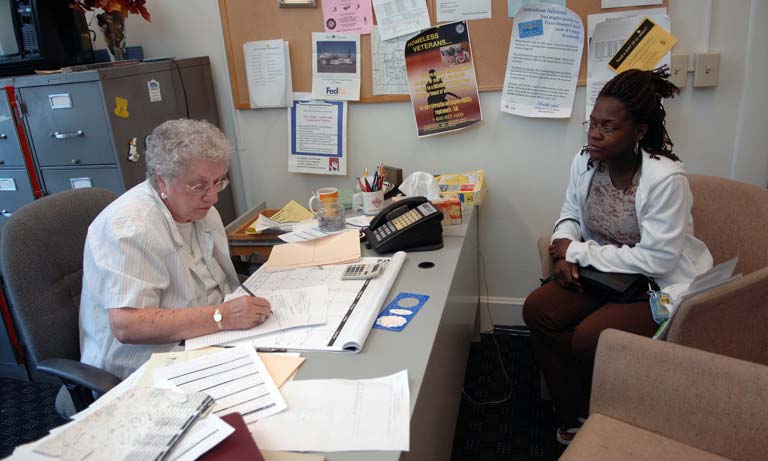

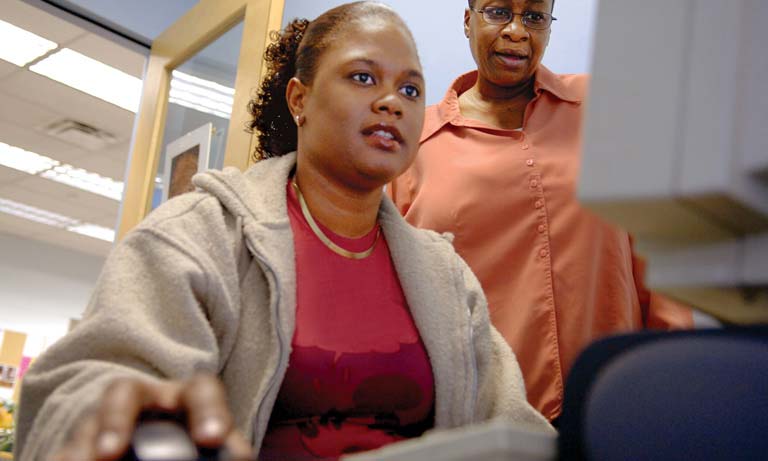
5
Atlas Stagecraft Training Program
Washington, DC
The Atlas Performing
Arts Center has been a
leading force behind the revitalization of the
H Street NE Corridor.
Open since 2006, The Atlas Performing Arts Center has been a leading force behind the revitalization of the H Street NE Corridor. DC LISC was an early investor, providing informal technical assistance and early capacity building dollars to set up the infrastructure for the day-to-day management of the Theatre.
In 2010, the Atlas furthered its commitment to the community and local arts organizations by creating a Stagecraft Job Training and Apprenticeship Program. Outside university settings, no such comprehensive training course is available in the DC area. DC LISC provided a $25,000 grant and ongoing documentation in support of the Atlas' first attempt at a program of this kind. DC LISC produced an audio-visual presentation of the program.
The nine-month program began in July 2010 and is training 15 unemployed or underemployed individuals in the technical theatre skills that are in demand and result in living wage employment. The skills – including carpentry, lighting, and sound and projection technology – will enable the trainees to find new employment opportunities in the performing arts and entertainment industry where there exists a critical need for skilled production staff.
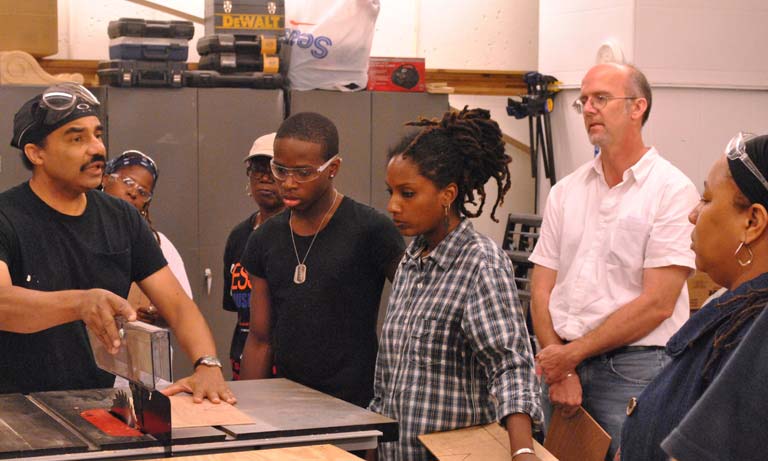
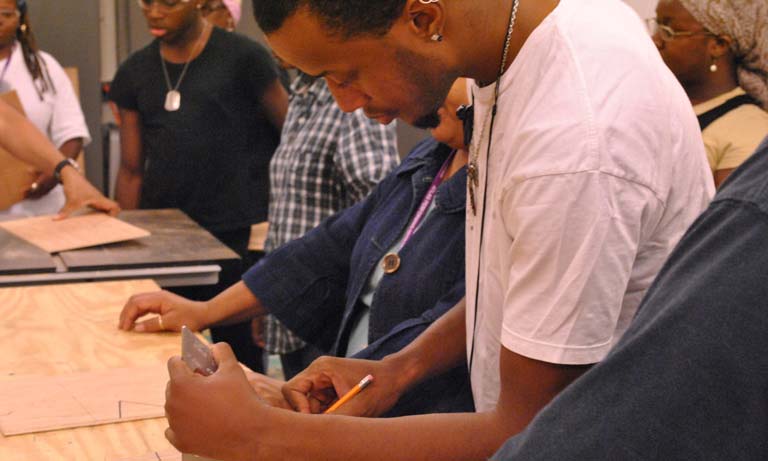
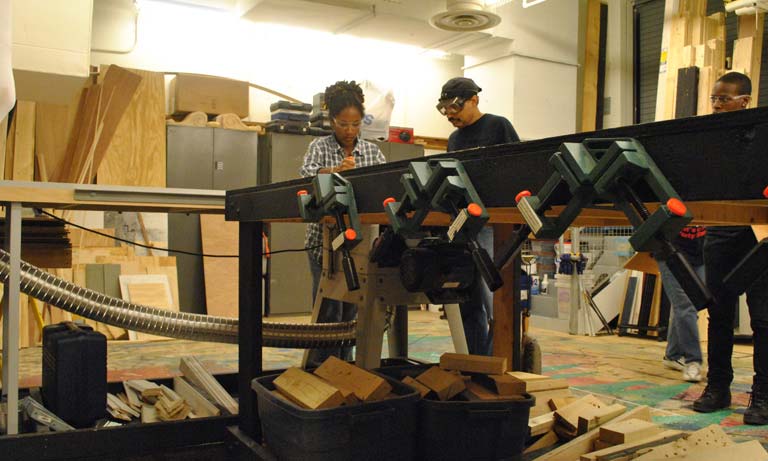
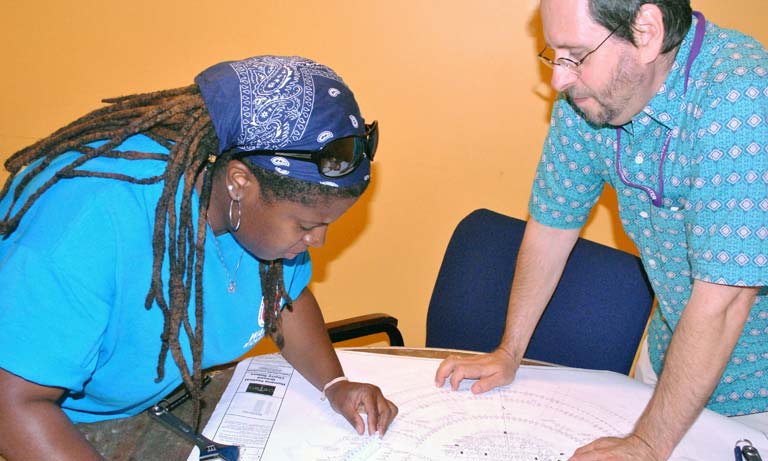
Still in the apprenticeship phase, all 15 remain in the program and are working at various theatre and stage companies in the region.